Amazon tree-felling blamed for polluting UK rivers
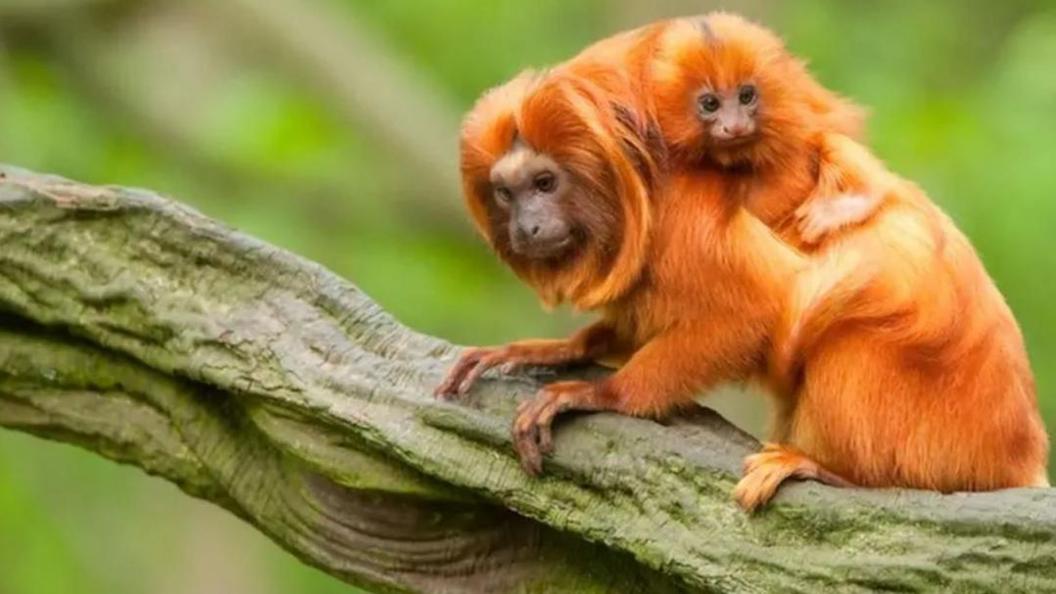
Tree-felling in Brazil has been blamed for issues caused in other parts of the world
- Published
Tree-felling in the Amazon rainforest is partly to blame for pollution that is plaguing UK rivers such as the Wye, a new report suggests.
It points the finger of blame at soy which is imported from vast plantations overseas and used as livestock feed, calling this a "hidden link" to the poor state of many waterways in Wales, and around the UK.
The report from environment groups Size of Wales, external and WWF Cymru, external says the soy is high in phosphorus, and becomes a pollutant when animal manure spread on land runs off into rivers.
It calls for action to stop the import of commodities linked to deforestation, while the Welsh government said it was already taking "ambitious steps".
What is COP30 and why does it matter for climate change?
- Published22 November
"What we eat and produce here... can have a profound effect on the future of forests and those communities that depend on them," explained Barbara Davies-Quy, deputy director of Size of Wales.
"Every time we buy cheap chicken fed on soy or buy corned beef from South American countries linked to deforestation risk, Wales is contributing to a system that drives the destruction of the Amazon and the Atlantic Forest and harms indigenous peoples."
The report has been released as representatives from 190 countries are gathering in the Brazilian city of Belém - described as a "gateway to the Amazon" - for COP30 climate talks.
Rainforests such as the Amazon are vital in the fight against rising global temperatures, acting as carbon sinks as well as being irreplaceable hotspots for biodiversity.
World leaders pledged to halt and reverse deforestation by the end of this decade at Glasgow's COP26 summit four years ago.
But today's report says rainforest destruction continues at "an alarming pace", pointing to recent data, external suggesting 6.7 million hectares of tropical forest were lost in 2024.
Shea Buckland Jones of WWF Cymru said "Wales' reliance on imported soy" had left "a trail of destruction from the forests of Brazil to the rivers of Wales".
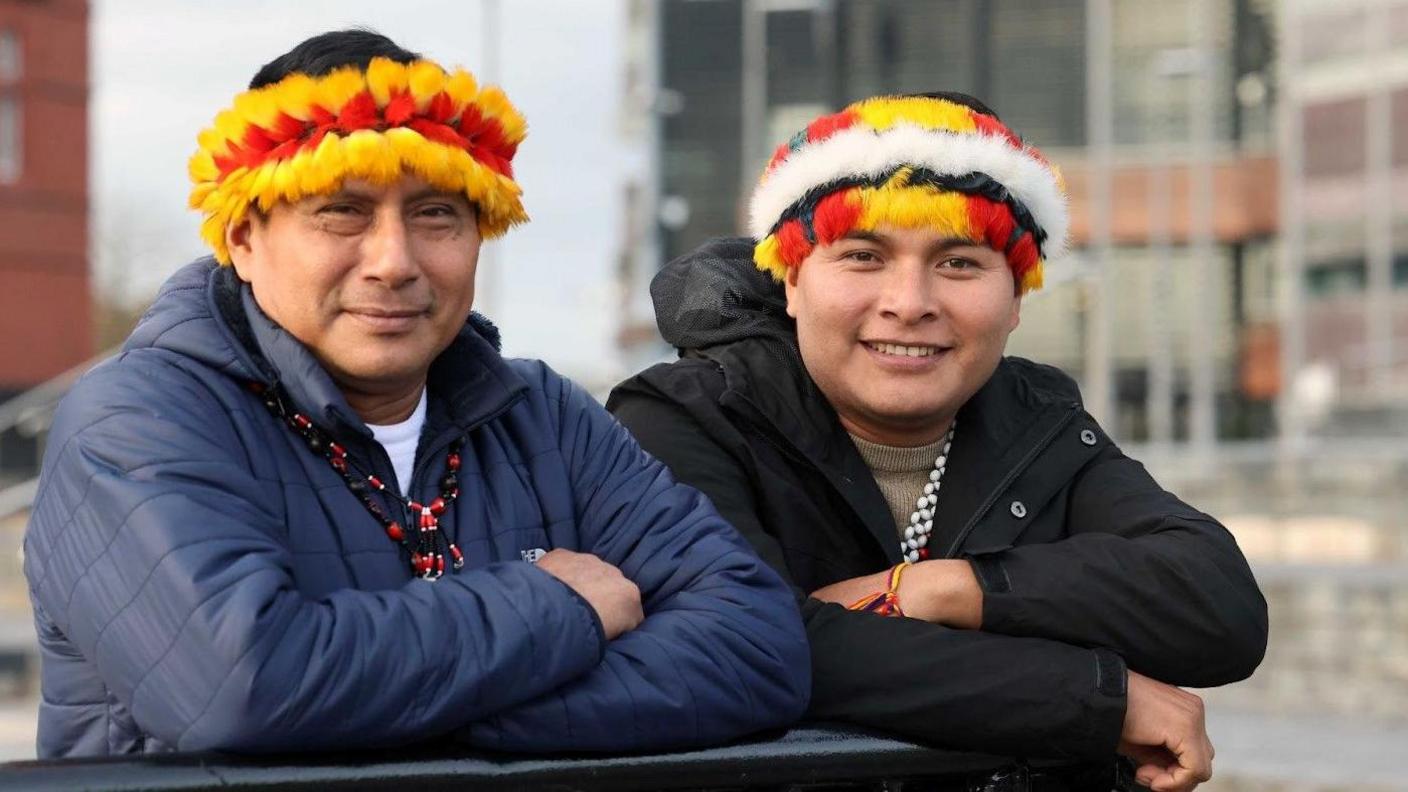
Teófilo Kukush Pati and Tsanim Wajai Asamat of the Wampís Nation - an indigenous nation from the Peruvian Amazon – visited the Senedd in 2024
The report calls for governments and local councils to do more to influence the situation by changing the food they buy in - avoiding goods which could have contributed to deforestation.
It says every year Wales imports around 190,000 tonnes of soy and 12,000 tonnes of beef.
Nearly three-quarters of the soy comes from countries that are at high risk of deforestation and social issues, as does 26% of beef imported.
In western Paraná, Brazil, the Avá Guarani people have lost much of their ancestral lands to vast soy plantations.
"Agribusiness came and destroyed everything - our rivers, our forests, our food," said Karai Okaju, an Avá Guarani leader.
"The land is sick. It cannot breathe."
The community has established a link with Wales, alongside the Wampís nation from Peru, whose leaders recently visited the Senedd to meet with ministers.
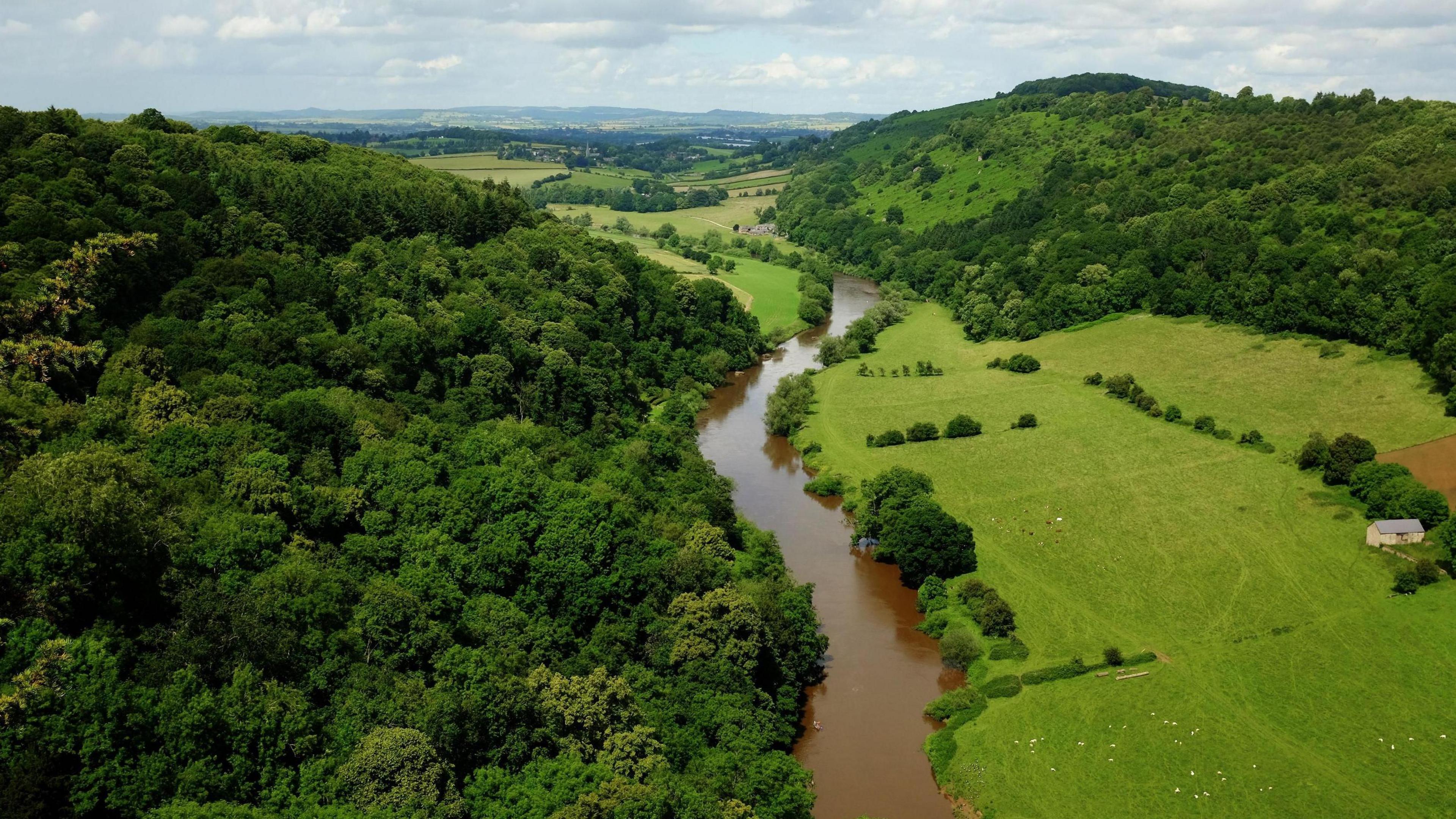
Phosphate pollution has become a major problem in the River Wye
About 80% of soy brought into Wales is used as livestock feed for poultry and dairy farms.
High in phosphorus, it can become a problem when excess nutrients from animal manure leaches into rivers and groundwater.
The issue has been hugely controversial along the River Wye in recent years, with as many as 23 million chickens - a quarter of the UK's poultry production - raised in the river's catchment area.
Several of Wales' other most protected river networks are also failing to meet targets around phosphate pollution - including the Usk and Cleddau.
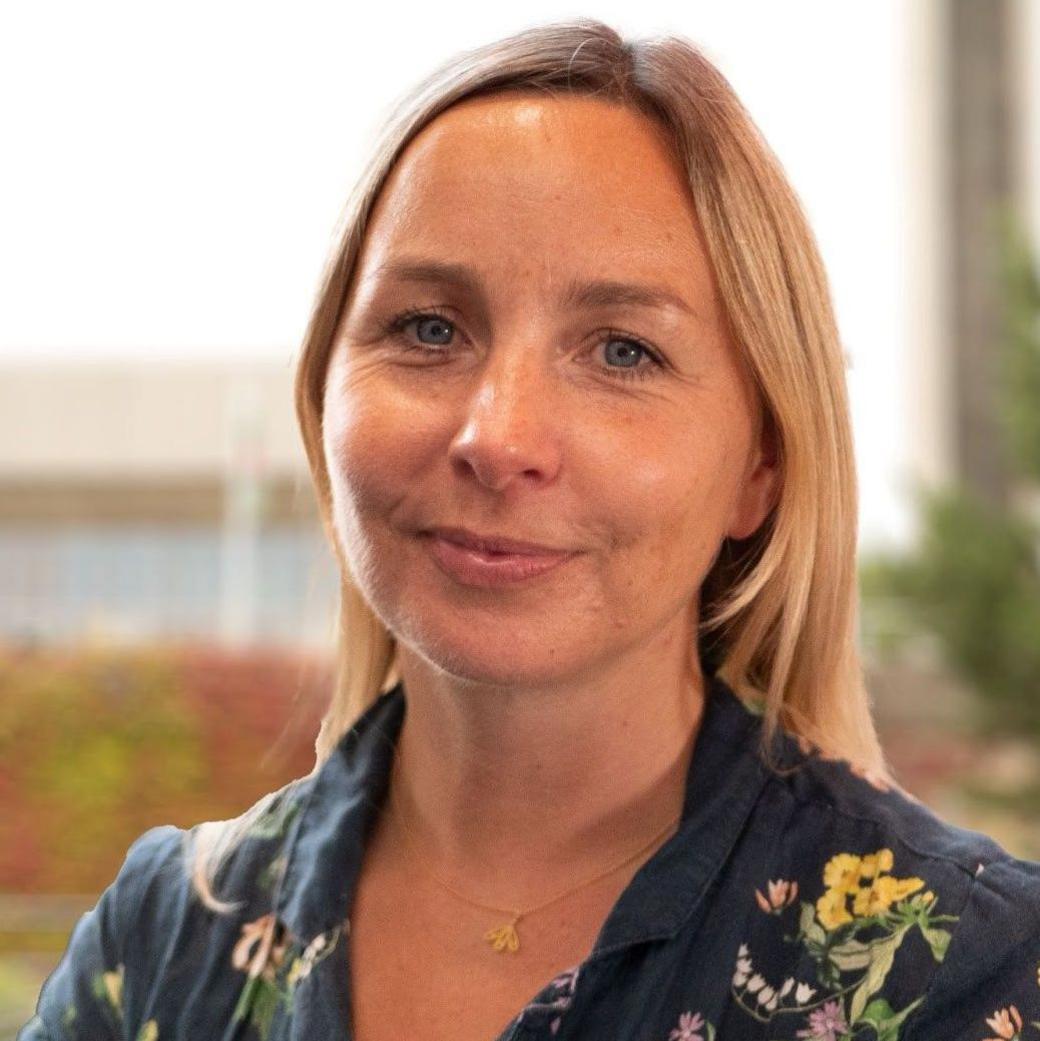
"If we change what's on our plates, we can change the planet," said Size of Wales' Barbara Davies-Quy
The report calls on the Welsh government to support farmers through its new subsidy system - the Sustainable Farming Scheme - to reduce reliance on imported soy feed.
It wants the public sector and businesses to commit to deforestation-free supply chains by 2028 and an outright ban on corned beef from Brazil.
It calls too for the promotion of diets with "less, but better" meat and dairy.
Despite what it describes as "stark findings", the report highlights positive examples of leadership on the issue in Wales.
Caerphilly council has new mandatory deforestation-free criteria for food procurement.
This means reducing the use of ultra-processed foods, sourcing higher welfare and organic meat and dairy, and Fairtrade coffee and cocoa.
Monmouthshire council became Wales' first Deforestation Free Champion council, external, in a move brought about as a result of lobbying by the county's school pupils.
It has involved scrutinising school meal provision across the county, reducing the use of palm oil and sourcing all beef from Wales.
A "deforestation-free chickpea korma" has replaced chicken curry on school menus across the county.
A delegation of school pupils from Monmouthshire have been invited to speak at an event at the COP30 summit via video link about what they have achieved.
Leader of Monmouthshire council Mary Ann Brocklesby said it was now starting to look at meals offered in care homes and tourist sites.
"We want as many other councils across the UK to do the same - it makes sense for our future and it's even better when it's our young people who are holding us to account."
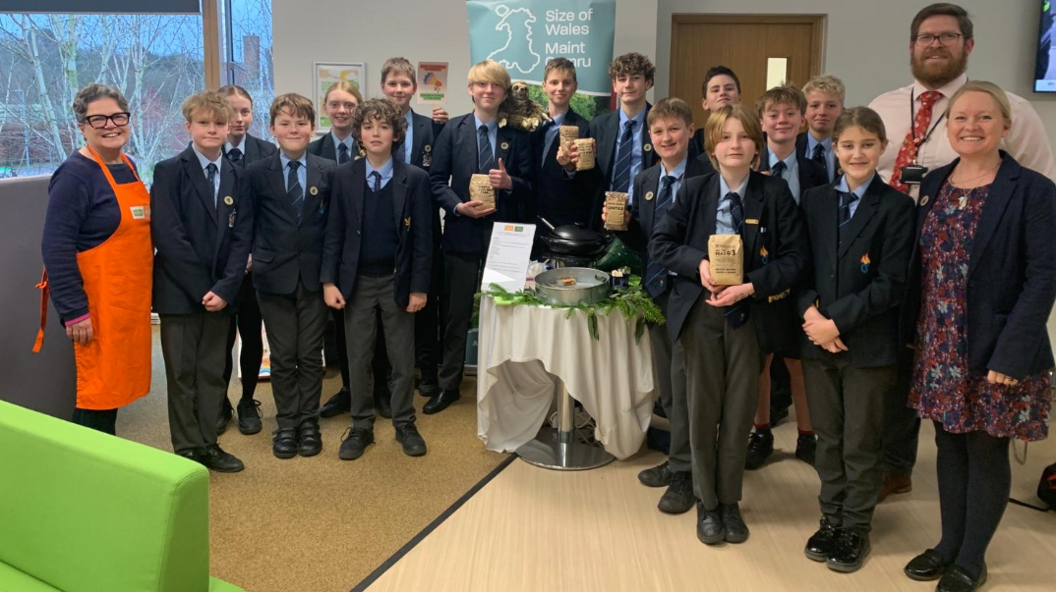
Pupils in Monmouthshire have been lobbying their local council to do more to remove goods linked to deforestation from school meals
Wales' Future Generations Commissioner Derek Walker has also called for a "deforestation-free public sector" by 2028.
Asked if it was affordable for councils to move away from cheap imported food at a time of squeezed budgets he said "the cost of not doing this is huge... to the climate emergency".
Mr Walker added it could also help the Welsh economy, saying: "Hopefully we'll be buying more locally-produced products whilst also doing the right thing globally."
The Welsh government said it recognised the importance "of playing our part in reducing deforestation-linked impacts, particularly through our supply chains and international partnerships".
"However, it is a challenge that requires a whole Wales effort, and one that we must face together to protect our planet for future generations," a spokesperson added.
More top stories
- Published10 November
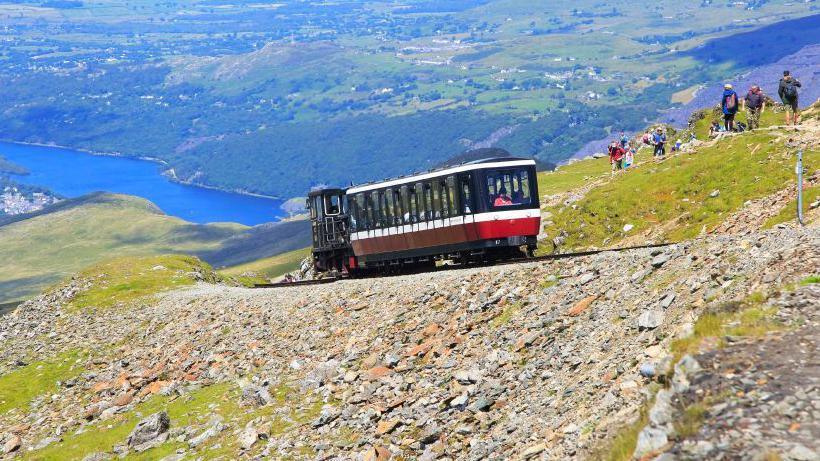
- Published9 November

- Published8 November
